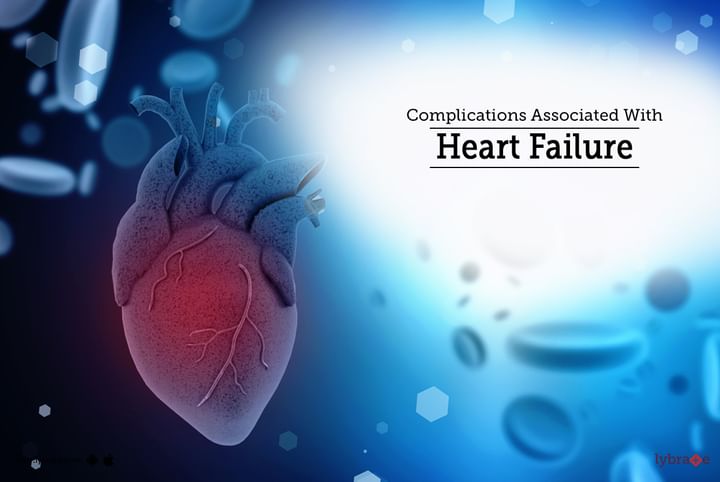Complications Associated With Heart Failure
Heart failure occurs when your body is unable to pump as much blood as it should. This can happen due to many reasons – the ventricle may become too damaged or stiff to work properly, or it may expand and cause your heart to pump blood faster, eventually leading to narrowing of the blood vessels and heart failure.
As your heart becomes weaker, you may observe symptoms like fatigue, shortness of breath, palpitation, etc.
Effects of Heart Failure on the Body
Heart failure affects your body by putting stress on the other organs – lungs, kidneys, and liver.
-
Normally, your kidney filters waste out of the blood, forms urine, and balances body fluids. To do all this, the kidneys need a steady blood supply. However, following heart failure, your kidneys may stop receiving a sufficient amount of blood and thereby stop functioning properly. The condition is a serious one, and may even lead to kidney failure.
-
A damaged heart is unable to pump blood effectively throughout the body. Blood backs up and increases the pressure in the veins within the lungs. This pushes fluid into the air sacs. As fluid starts accumulating in the lungs, it gets difficult for you to breathe. The condition is commonly known as pulmonary edema. Symptoms include – wheezing and coughing, shortness of breath, swellings in the legs, abdomen, etc.
-
Heart failure can rob your liver of the blood it essentially needs to function. Excess fluid build-up puts pressure on the portal veins, which carry blood to your liver. This can scar the liver to an extent that it loses its ability to work as fine as it should.
-
The heart consists of four valves. All four help blood flow forward. The valves must close tightly and open completely to prevent the backward flow of blood. After heart failure, however, the valves either shrink (causing the blood to back up), or do not close properly (causing the blood to flow back to your heart).
Heart failure only gets worse with time. In some severe cases, the condition can be fatal. In order to avoid the above complications and maintain a healthy heart, stick to the treatment plan as recommended by your doctor.


+1.svg)
